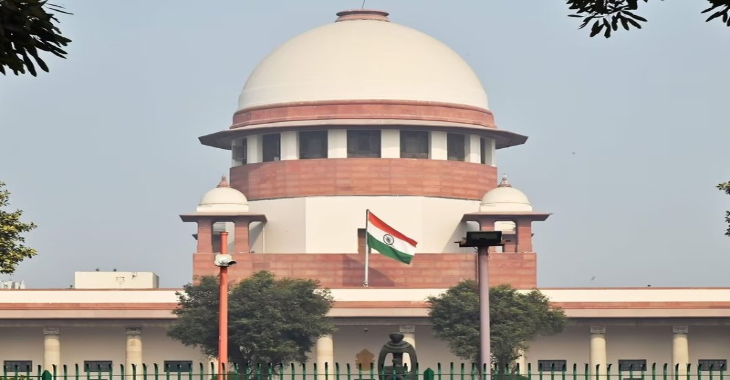On Thursday, the Supreme Court will consider a number of pleas requesting that Jammu and Kashmir be granted statehood again within a specific time frame.
A Bench consisting of Justice K. Vinod Chandran and Chief Justice of India B.R. Gavai will hear the case on Thursday, one day before Independence Day, according to the causelist posted on the top court’s website.
Senior advocate Gopal Sankaranarayanan brought up the petitions last week, and CJI Gavai decided to keep them on the hearing board.
Zahoor Ahmed Bhat and activist Khurshaid Ahmad Malik submitted one of the cases, claiming that the protracted delay in regaining statehood is “violating the idea of federalism and gravely affecting the rights of the citizens of Jammu and Kashmir.”
The applicants argued that the lack of a timeline for restoration violates federalism, which is a component of the Basic Structure of the Constitution.
A five-judge Constitution Bench led by then Chief Justice D.Y. Chandrachud left open the question of whether Parliament has the power to abolish statehood by turning a state into one or more Union Territories in its historic decision on Article 370.
The Bench cited a declaration made by Solicitor General Tushar Mehta promising to restore statehood to Jammu & Kashmir.
The Union Home Ministry was unable to give a precise date during the oral hearings, stating that it would take “some time” to reestablish statehood. This was said by SG Mehta, the Center’s second-highest law officer.
However, in accordance with Section 14 of the Reorganisation Act, the Constitution Bench, which also comprised Justices S.K. Kaul, Sanjiv Khanna, B.R. Gavai, and Surya Kant, ordered the Election Commission of India to hold elections for the Legislative Assembly in Jammu and Kashmir by September 30, 2024, and declared that “restoration of statehood shall take place at the earliest and as soon as possible.”
According to Article 3(a) read with Explanation I of the Constitution, which permits the establishment of a Union Territory by separating a territory from a state, the ruling also maintained Ladakh’s position as a Union Territory.
The Supreme Court rejected review petitions contesting this decision in May 2024, stating that there was “no error apparent on the face of the record” and refusing to schedule an open hearing.
Read More
Rajiv Pratap Rudy, a BJP MP, wins the Constitution Club election
Trump tariff won’t hurt the Indian pharmaceutical industry: Former ICMR chief


